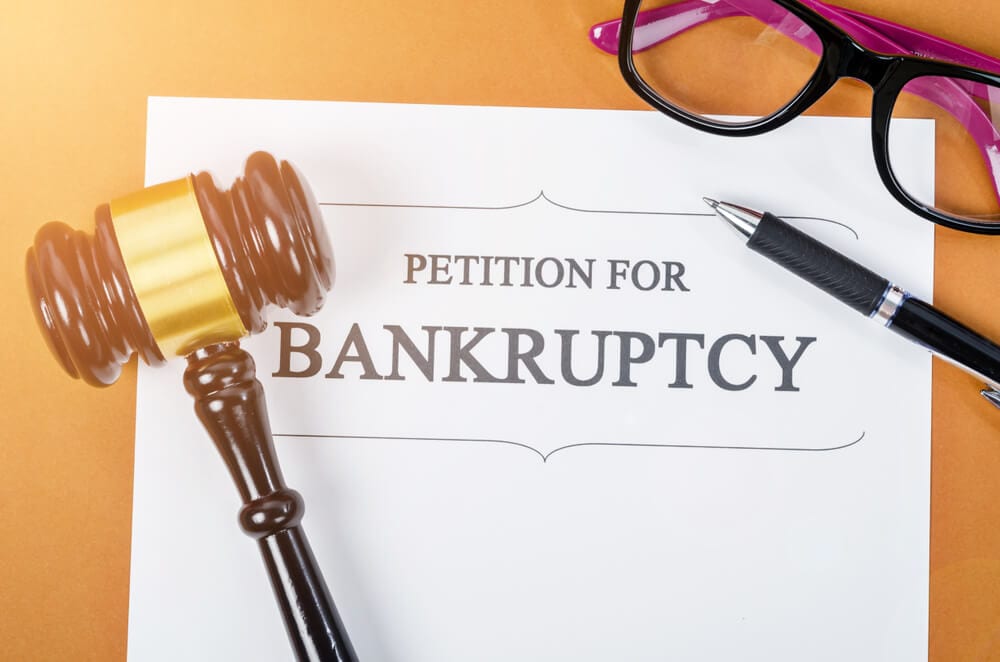Pre-Bankruptcy Credit Counseling
Home > Bankruptcy >
Even if you weren’t a fan of the hit TV comedy “The Office,” you may sympathize with its main character, office manager Michael Scott, whose financial difficulties and general cluelessness led him to announce to his employees: “I declare BANKRUPTCY!”
It had to be explained to him that this utterance changed nothing. Creditors are not obliged to respect panicked verbal declarations.
More importantly, those contemplating bankruptcy must first talk to a nonprofit credit counseling agency to see whether it’s possible to pay off their debts without this drastic step.
You may feel that bankruptcy is the only way out, and you may be right, but credit counseling is required to give you an idea if you really need Chapter 7 or Chapter 13 bankruptcy.
What Does Pre-Bankruptcy Credit Counseling Involve?
Credit counseling is designed to provide a clear picture of whether it’s possible to get back on solid financial footing without bankruptcy. The counselor will review your income and expenses, discuss alternatives and help you develop a personal budget.
The goal is to make sure you have explored every possible option before declaring bankruptcy.
The credit counseling agency may or may not be able to develop a feasible repayment plan, and you aren’t required to agree to such a plan, even if it is workable. But you are required to file that plan with your other bankruptcy paperwork, in which you disclose everything about your financial situation.
The agency offering the credit counseling must be approved by the U.S. Trustee Program office. The session must take place within 180 days before filing for bankruptcy. The counseling fee is about $50, and you can ask for the fee to be waived if you can’t afford it, or to pay it in installments.
The credit counseling organization will provide a certificate once you’ve completed the counseling, and you must file it along with bankruptcy paperwork within 15 days after your bankruptcy filing date.
Can I Complete Credit Counseling for Bankruptcy Online?
Yes, in fact, most counseling sessions occur online or over the phone or both. The sessions usually take about an hour.
For example, InCharge Bankruptcy Solutions offers Pre-file Credit Counseling that begins online. The next step is a personal counseling session by telephone to talk about your current financial situation. A certified financial counselor will help you develop an accurate picture of your situation and provide specific advice on how to improve.
You’ll discuss short- and long-term financial goals and determine if there are any alternatives to bankruptcy. If bankruptcy is necessary, the counselor will explain its effects and provide steps you can take to get back on sound financial footing.
Those entering credit counseling must use organizations approved by the U.S. government. A list of approved credit organizations can be found online at https://www.justice.gov/ust/list-credit-counseling-agencies-approved-pursuant-11-usc-111.
The U.S. Trustee Program responsible for approving such organizations does not operate in North Carolina or Alabama. In those states, bankruptcy administrators approve such organizations.
What is a Pre-Discharge Debtor Education Course?
If you already have filed for bankruptcy, you must complete a separate debtor education course before the debts are discharged. The course teaches money management skills to help you avoid a second visit to bankruptcy court. It covers areas like budgeting, responsible use of credit, money management and dealing with financial emergencies.
The classes cost from $50 to $100 and take about two hours to complete in person, by phone or online. You will receive a certificate to prove you’ve completed the course. The DOJ also has a list of approved organizations providing this counseling at https://www.justice.gov/ust/list-approved-providers-personal-financial-management-instructional-courses-debtor-education.
There are deadlines for filing the certificate for post-bankruptcy education depending on which type of bankruptcy is involved. For Chapter 7 cases, it must be filed within 45 days after the creditors meeting. For Chapter 13, it must be filed no later than the date of your last payment in the repayment plan or the date of the filing for the motion for a discharge.
How to Choose a Nonprofit Credit Counseling Agency
Obviously, you need to choose an agency approved by the federal government. That leaves a lot of options.
Some questions to ask these organizations before making a choice include:
- What services do you provide?
- Can you help me create a strategy to avoid future debt?
- What do your services cost? If I can’t afford them, can you waive the fees?
- What training and certification requirements have your counselors received?
- What assurances will I have that my ID information will be kept secure?
- Are your counselors paid based on selling me additional services?
Credit counseling might seem like just one more hoop to jump through on the road to getting your finances in order. But remember: It might give you the tools to avoid bankruptcy in the first place or having to go through this again in the future.
Sources:
- O’Neill, C., ND. The Pre-Bankruptcy Credit Counseling Requirement. Retrieved from https://www.nolo.com/legal-encyclopedia/the-pre-bankruptcy-credit-counseling-requirement.html
- NA, ND. Bankruptcy: Counseling Before Filing. Retrieved from https://bankruptcy.findlaw.com/what-is-bankruptcy/bankruptcy-credit-counseling.html
- NA, ND. Chapter 13: Credit Counseling and Debtor Education Information. Retrieved from https://bankruptcy.findlaw.com/chapter-13/chapter-13-credit-counseling-and-debtor-education-information.html
- NA, ND. Bankruptcy Education. Retrieved from https://www.incharge.org/bankruptcy/bankruptcy-education/
- NA, ND. Credit Counseling Certificate. Retrieved from https://www.consumercredit.com/credit-counseling-certificate


